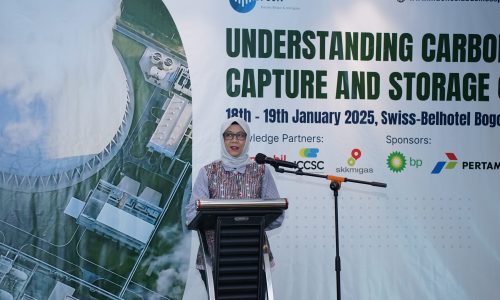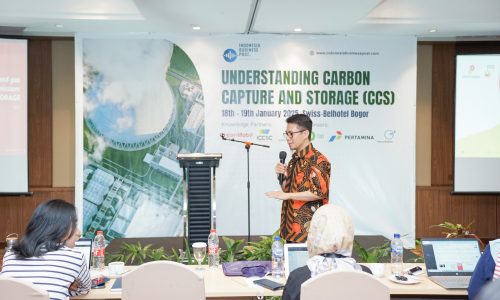The House of Representatives (DPR) passed Law No. 21/2001 on Special Autonomy for Papua in November 2001. The law – comprising of 27 chapters and 29 articles – was deemed as a strategic shift for the government. During former authoritarian Soeharto’s New Order, the government applied an iron fist and security approach against Papuans and their demand for independence.
The special autonomy law granted increasing authority to the provincial administration of Papua to manage education, health and other affairs. It also allowed the province to manage its natural resources for the benefit and interest of the local people. However, the government still fully control other issues, most importantly defense, finance, including the currency, national police institution and foreign policy.
Twenty years after its implementation, many problems still occur such as inequality, underdevelopment, racism, human rights violations and environmental destruction.
The demand for Papua’s independence is still high as separatist groups intensify their lobbying, campaign and armed struggle.
On July 15, 2021, the DPR revised the law. Deputy chairman of the special committee for Papua special autonomy law Yan P. Mandenas said the House revised 18 articles and added two provisions of the law.
Fund allocations
In a statement to Indonesia Business Post, Mandenas said that in the revised law, the House and the government have agreed to increase the special autonomy fund from 2% to 2.25% from the State Budget’s annual general allocation fund.
The revised law’s Article 34 verse 3 stipulates that particular revenue in special autonomy is equal to 2.25% of the general allocation fund. From the 2.25% fund, 1% will be allocated for the development, maintenance and implementation of public services to increase the welfare of Indigenous Papuans and strengthen traditional institutions. In comparison, 1.25% is for education (30%), health (20%) and economic empowerment until 2041.
According to Cahyo Pamungkas, a researcher with the Indonesian Institute of Sciences (LIPI), the Papua and West Papua administrations had the authority to use the fund as stipulated in the previous law. The fund was in block grants based on their needs and plans. In the revised law, the fund is reduced to 1%. However, 1.25% of the fund is controlled by Jakarta and will be disbursed directly to regencies and cities in Papua based on their performance.
Local administrations have to submit and file proposals. The government will review the proposals.
The law also stipulates that the use of the fund will be monitored by the House, the Regional Representative Council (DPRD), the Supreme Audit Agency (BPK) and universities.
Establishment of a special body
In the revised law Article 68 A, a special body will be established and will be responsible directly to the president with the task to synchronize, harmonize, evaluate and coordinate the implementation of the special autonomy.
The special body consists of a chairman and several members. Vice president will serve as the chairman of the special body with home affairs minister, national development planning minister and finance minister as members, as well as one representative from every province in Papua. A secretariat of the special body is in Papua.
The government’s objective in establishing the body is to speed up the development in Papua and West Papua and shorten communication between Jakarta and Papua.
According to Pamungkas, the existence of the new body will create more issues on authority.
There is no clarity on whether the particular body represents the government or not. If it is a prominent government representative, there is no need for governors or regents in Papua to commute to Jakarta concerning development plans. They can coordinate directly with the Papuan secretariat of the body.
Besides, there is also a concern that the body will increase bureaucracy between the government and Papua. In the past, a regent in Papua could report directly to the home affairs ministry, but now the regent should work through the appointed particular body before coordinating with a ministry.
“The concern is reasonable if we take into account what happened with the Special Unit for the Acceleration of Development in Papua and West Papua (UP4B) under then-President Susilo Bambang Yudhoyono. The special unit has failed to coordinate the ministries and local administration, and also it was financed by the special autonomy fund,” said Pamungkas.
Political representation
In the revised law, the political participation of Papuans will be based on the appointment at the regency level. If, in the previous law, members of the DPRD can only be appointed at the provincial level, the system will also be applied to the regency level after the revision.
The revised law’s Article 6A stipulated that DPRD members in Papua consist of members elected in a general elections based on the existing law and appointed from indigenous Papuans.
At the same time, the revised law removed clauses on local political parties that are regulated in the 2001 Special Autonomy Law. The previous law stipulated that residents of Papua could establish political parties.
The government also tightly monitors the appointment of reserved seats at the DPRD by a selection panel. Under the enacted law, the formation of selection panels to fill indigenous seats in the DPRD is managed by the Home Affairs Ministry.
Pamungkas regretted the government measures to remove the law’s clause on local political parties. In his opinion, local political parties can be a channel for groups with different views from Jakarta.
Adriana Elisabeth from LIPI also said that whether it is in neighborhood political parties or appointments in the local council, the government should involve complex line groups who support independence for Papua. “It is pointless to exclude them from local councils or parties; it will solve the problem,” she said.
Creating new provinces and districts
The revised law’s Article 76 verse 2 stipulated that the government and the DPR can create supplementary provinces and/or regions without the consent of the provincial government or Papuan People’s Assembly (MRP). Despite verse 1 of article 76, the creation of new provinces and regions, or cities, is subject to the approval of MRP and Papua Council.
According to Pamungkas, verse 2 of article 76 undermines the authority of the MRP and Papua provincial administration. The amended law allows the government to create independent provinces and regions in Papua without the consent of MRP and the local administration of Papua.
Pamungkas said there was a concern from Jakarta that MRP would not approve their plan to create new provinces or regions in Papua. “There is a concern that the government has its schedule, and it fears that MRP will reject it. The concern is baseless,” he added.
Elisabeth said the government distrusted the provincial administration and MRP. She said that since the beginning, she did not agree with the idea of bypassing the authority of the provincial administration and MRP in creating new provinces or regions. The government should consult with Papua and West Papua local administrations regarding the special autonomy.
“The government can not take a one-sided action to create new provinces or regions without consultation with Papua,” she added.
Strong oppositions
There have been protests and rejection from Papuans over the new special autonomy law. Opposition to the revision also came from Papuan civil society groups. An organization calling itself Petisi Rakyat Papua (Papua People’s Petition or PRP) claimed that it had collected 714,000 signatures opposing the special autonomy law. The PRP expressly demands self-determination for West Papua.
Markus Haluk of the United Liberation Movement for West Papua (ULMWP) said the special autonomy law was merely a candy from Jakarta. This is to dampen lobbying, diplomacy and the demand of the people of Papua for freedom. Consequently, he said, it must be Jakarta’s autonomy law since Jakarta has discussed it. In Jakarta’s interest, the government endorsed it without involving rival parties in Papua.
As the unique autonomy child, MRP was not involved in the deliberation. In 2001, when MRP tried to have a public consultation as mandated by the special autonomy law, the Indonesian military and police arrested and prevented them.
Haluk said his organization had rejected a special autonomy law for a long time because the law did not benefit the people of Papua. “Trillions of rupiahs of the fund is for the interest of the elite and bourgeois. The people never asked for money,” he said, adding that what has been taken from Papua is far greater than what has been given to Papua.
Meanwhile, Sebby Sambom, spokesman of the West Papua National Liberation Army (TPNPB) said his organization paid no attention to the special autonomy law. This is not the final solution for the Papuan people. The key is to fight for freedom and not abide by unjust laws.
“In Aceh, the government and the Free Aceh Movement (GAM) signed the Helsinki Agreement together, while in Papua, the government ignored the group’s existence. It is a garbage program from Jakarta,” he added.
Elisabeth said that special autonomy would be a win-win solution between the government and the Papuans who demand for independence.
After 20 years, the unsolved problems regarding Papua remain. The revised law emphasized a development approach, focusing on improving good governance and the special autonomy fund. By speeding up the development, the government hoped to achieve that goal. The Papuan problem will be solved with effective management. Elisabeth, however, believed the measures would solve some aspects of the problem but not all, such as racism, human rights abuses and inequality.









